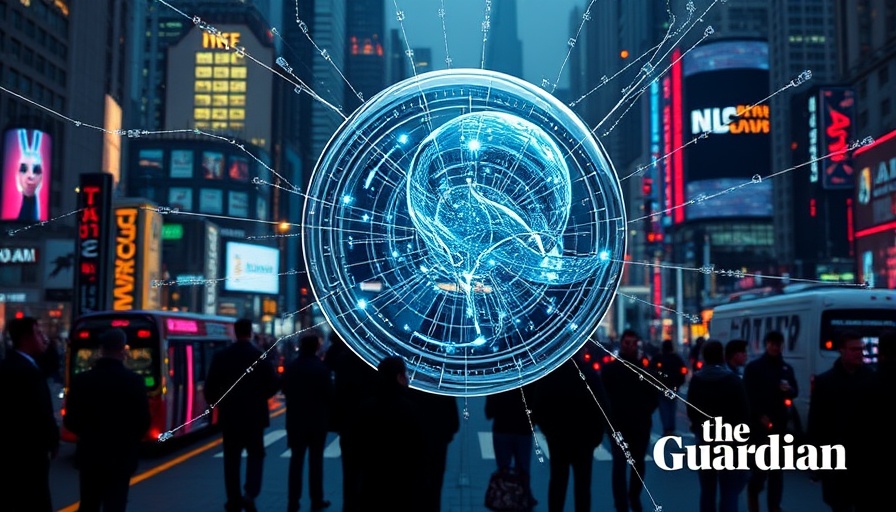
The Rise and Risks of an AI Bubble: Capitalism at a Crossroad
This summer, OpenAI’s co-founder Sam Altman raised eyebrows within the financial community by labeling certain tech valuations as “insane.” His remarks came amid rising concerns that the current AI boom is drawing parallels to the infamous dot-com bubble, as global regulators caution about inflated stock prices and the potential fallout. As AI companies raise vast sums amid dizzying market valuations, the sense of urgency is palpable; if investors lose faith, the economic ramifications could be drastic.
The Lessons of History: Are We Ignoring Warning Signs?
The stock market can be irrational, with investors often ignoring the lessons of hallowed economic histories, from the tulip mania of the 17th century to the dot-com crash of 2001. Renowned economist Hyman Minsky articulated how market stability breeds risk-taking. His idea that belief underpins capital markets is particularly relevant today: decisions are often motivated by the expectation that others will follow suit, thus creating a self-fulfilling prophecy of rising valuations. However, if skepticism creeps in, the ensuing crash can be swift and brutal. Sam Altman's stressing the absurdity of funding startups that merely consist of 'three people with an idea' highlights the volatility within the sector and the potential for a severe correction.
The Role of Institutional Reform—Minsky's Vision Revisited
Revisiting Minsky's insights calls for a systematic redesign to stabilize our capitalist framework. Instead of simply propping up stock prices, Minsky argued for supporting society when prices inevitably fall. Central to his argument was the need for 'big government' to enforce fiscal policies that direct investments toward socially beneficial technologies rather than speculative ventures. This insight has never been more crucial as investors funnel cash into AI at alarming rates while the fundamental sustainability of many enterprises remains uncertain.
AI’s Promises and Pitfalls: Insights from Recent Studies
A recent MIT report revealed a staggering 95% failure rate among AI pilot projects. This data should alarm not just investors but every leader within the sector. Unlike the sensational speculations around AI's potential, the reality appears less appealing. Many companies fail to effectively integrate AI into their workflows due to a problematic 'learning gap.' The report highlighted that a majority of businesses lack the necessary understanding and expertise in using AI’s capabilities correctly. Thus, while investment continues to rise, the returns remain questionable.
The Financial Landscape: How AI Companies Are Funded
The influx of capital toward AI has raised questions regarding financial sustainability. With projections expecting AI companies to need around $2 trillion in annual revenue by 2030 to support their operations, current estimates suggest they will fall short by $800 billion. Heavy reliance on debt, similar to tactics seen during the dot-com era, compounds the risks. Organizations throughout the industry are grasping for survival through gargantuan infrastructure projects that may outpace demand, reminiscent of the overspending during the prior tech bubble.
A Mixed Bag: Will It Be Triumph or Tragedy for the AI Industry?
Despite the looming fears of an asset bubble echoing through Wall Street, many observers believe AI could transform industries and elevate human productivity. While the skepticism surrounding these immense capital injections is warranted, the overarching sentiment remains mixed. There is an expectation that just as some companies triumphed following the dot-com crash, others like Amazon and Google emerged stronger and more innovative. The question now is whether history is doomed to repeat itself or if the lessons learned will materialize into a more responsible evolution of the tech landscape.
As AI enthusiasts, it’s vital to comprehend the intricacies of this phenomenon. The intersection of excitement and caution defines the current narrative and will ultimately dictate the industry's future. Will AI truly stand the test of time, or are we on the precipice of an inevitable collapse? The answers may influence not just the stock market but the very fabric of our economy.
 Add Row
Add Row  Add
Add 




Write A Comment